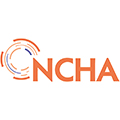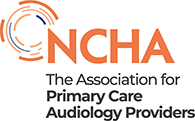13 March 2020
NCHA Member Newsletter - 13 March 2020
- NICE Publishes tinnitus guideline
- COVID-19 update
- HCPC appoints new CEO
- Budget statement - update for hearing care providers
- AAA conference cancelled
- Chief Scientific Officer Strategy published
- Other sector news
- Health Policy update
- Live consultations
|
NICE publishes tinnitus guideline The National Institute of Health and Care Excellence (NICE) has published its final guideline on tinnitus: assessment and management. The NCHA provided extensive feedback on the draft guideline during the consultation phase to ensure the final version was evidence-based, objective and impartial on location of care. The resulting guideline incorporates NCHA and other stakeholder feedback and is a much improved version of the initial draft. Read the BTA’s response to the new guideline. Members are encouraged to read the guideline and send any feedback to [email protected]. Members can also contact NICE directly at [email protected]. |
|
There continues to be some misinformation on the coronavirus (COVID-19). Members are advised to carry on using official sources for up-to-date information. You can access this as follows: England – Guidance of clinicians For a more general overview you might find the following independent sources useful:
Business advice If you are an employer or a business owner the government encourages you to read and follow its guidance for employers and businesses. The government has also announced a series of measures to support businesses during a potential downturn during COVID-19 (see Budget update below). Businesses struggling to meet tax commitments due to short-term cash flow issues might also be able to access government support. Learn more or call the dedicated HMRC on 0800 0159 559. Practice owners might also find advice issued by the CBI helpful as it covers tips on managing daily operations (including cleaning and supply chain management), signposting HR teams to government advice for employers, communication with staff, and managing sick pay and sickness at work. The CBI will continue to update this resource and members might find it useful to monitor. Learn more. The NCHA is in regular contact with the NHS and will keep members up to date with any major developments. If you have any questions, please contact us [email protected]. |
|
The HCPC has appointed John Barwick as the new chief executive of the regulator. John joined the HCPC eight years ago as a case team manager and in a statement said: “There has never been a more important time, with what is happening with coronavirus for example, for making sure that we provide excellence in everything we do. One of the ways we can do this is to make sure that our wonderful and selfless health and care professionals are supported and allowed every opportunity to treat those they see every day.” |
|
Budget statement – update for hearing care providers What could this week’s Budget announcement mean for NCHA members? We have summarised the key issues affecting you, whether you’re a practice owner, self-employed or an employee of a hearing care practice.
What it might mean if you’re a practice owner
What it might mean for employed staff
What it might mean for you if you are self-employed/a locum
Healthcare
|
|
The American Academy of Audiology (AAA) Board of Directors cancelled the annual AA Conference this week as a result of COVID-19. The event was planned to take place on 11 March, but in a statement the AAA said it was cancelled because: “In an abundance of caution for the health and safety of our attendees and the patients they serve (who may be part of at-risk populations)". |
|
Chief Scientific Officer Strategy published This week the Chief Scientific Officer (CSO) for NHS England published Science in healthcare: Delivering the NHS Long Term Plan. The strategy focuses mainly on areas of healthcare science in the Long Term Plan, but also makes a few references to hearing loss and audiology, with a greater focus on technology. For example, the CSO report notes how new technology could help people with hearing loss self-manage and access remote support from clinicians, reducing the “need for patients to travel to hospital”. It also claims that advances in hearing-aid technology had reduced “the need for costly audiology appointments and providing better patient satisfaction and improved clinical outcomes”. |
|
OTHER SECTOR NEWS |
|
HEALTH POLICY UPDATE GPs at the LMC conference have voted to reject the primary care network (PCN) contract agreed by the BMA and NHS in February, reports the HSJ. The vote, although non-binding, potentially disrupts one of NHS England’s flagship policies in the Long Term Plan. GPs reported that PCN contracts present a ‘Trojan horse’, shifting unsustainable levels of work from secondary to primary care without sufficient investment and represents an “existential threat to the independent contractor model”. |
|
OTHER POLICY NEWS |

Press enquiries
Media enquiries should be directed to [email protected] or call 020 7298 5110.
We are happy to put you in touch with our expert policy advisers who can comment on a variety of issues.
You can also follow us on Twitter and LinkedIn.

 Your hearing and aural health
Your hearing and aural health  Commissioners and Policymakers
Commissioners and Policymakers  Member support and guidance
Member support and guidance News and views
News and views
 Hearing map
Hearing map
